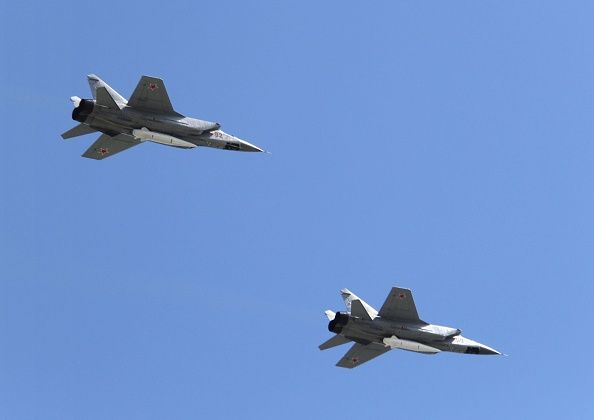Russia, Vietnam concealing arms deals via joint energy profits to evade US sanctions, AP reports

Russia and Vietnam have developed a mechanism for hiding arms deal payments in order to circumvent U.S. and European sanctions, the Associated Press (AP) reported on Sept. 19, citing Vietnamese government documents obtained by the publication.
The two nations used profts from joint oil and gas enterprises to fund defense contracts, bypassing the global banking system, the documents show.
Russia's major banks were cut off from the SWIFT international transaction system — overseen by the U.S. and other Western nations — due to global sanctions imposed after the full-scale invasion of Ukraine in 2022.
Russian defense companies are also subject to widespread Western sanctions.
Despite these penalties, Vietnam has purchased fighter jets, tanks, ships, and other military equipment from Russia, carrying out the deals quietly via a backdoor arrangement designed to conceal the transactions from the global finance market and possible U.S. sanctions.
Hanoi purchases the weapons on credit from Moscow, then repays the credit from its share of profits from Rusvietpetro — a joint Vietnam-Russia oil venture operating in Siberia.
According to the AP, Vietnam's additional profits beyond the military loan repayments are transferred to Zarubezhneft, a Russian-owned oil and gas company based in Moscow. Zarubezhneft then transfers an equal sum from its joint venture located in Vietnam directly to Vietnam's Oil and Gas Group (PVN).
This system allows the countries to avoid international financial transfers while executing significant weapons contracts.
Plans for the arrangement were originally leaked in 2023, the AP reports. Despite the leak, the plan went forward, as internal Vietnamese documents from 2024 reveal. The official who leaked the newer document to the AP said he was opposed to Hanoi seeking closer ties with Moscow and endangering its relationship with Washington.
The U.S. State Department declined to comment on the specific document.
"Those engaging in certain transactions or activities with sanctioned entities and individuals may expose themselves to sanctions risk or be subject to an enforcement action," the State Department said in an email to the AP.
News of the concealed arms deals comes as the European Union prepares to target Russia's banking and energy sectors in its 19th round of sanctions, unveiled on Sept. 19. The package includes a proposed total import ban on Russian liquefied natural gas (LNG).
Vietnam and Russia have long had close relations, dating back to the Soviet Union's support for North Vietnam and its proxy forces during the Vietnam War. Russian President Vladimir Putin visited Hanoi in June 2024, during which the two nations agreed to deepen their strategic partnership and signed over 10 documents.
Vietnam has adopted a neutral stance regarding Russia's war against Ukraine.












